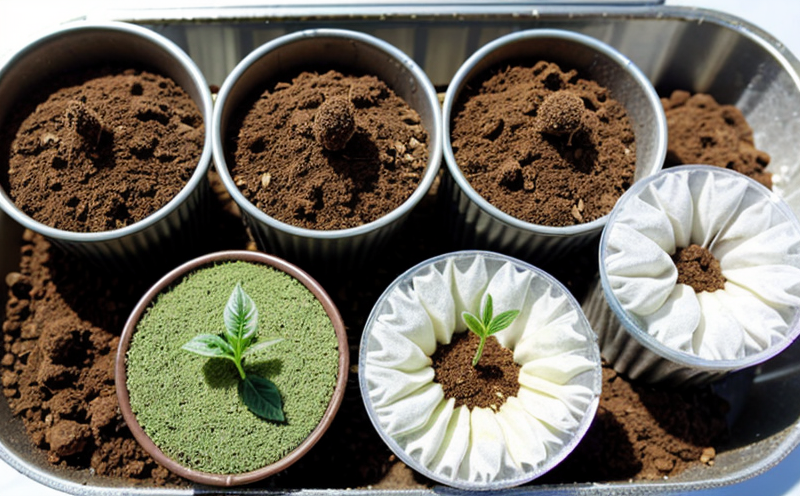Seed Processing Quality Testing
In agriculture and forestry testing, seed quality is a critical determinant of crop yield and overall farm productivity. Seed processing quality testing ensures that seeds are not only free from contaminants but also meet the required standards for germination and growth under specified conditions. This service plays an essential role in maintaining the integrity of seeds before they reach farmers or nurseries.
The process involves several key steps, including drying, cleaning, sorting, and conditioning, which can significantly affect seed quality. These processes must be meticulously controlled to ensure that the final product is fit for purpose. The testing methodologies employed are designed to assess various parameters such as moisture content, germination rate, viability, and purity.
Detailed testing ensures that seeds meet international standards, such as ISO 3632, which specifies methods of seed testing for agricultural crops. This standard helps ensure consistency across different regions and enhances the reliability of seed quality reports. By adhering to these standards, laboratories can provide accurate and reliable results that are trusted by stakeholders in the agriculture sector.
For instance, moisture content is crucial as it directly impacts seed storage life and germination rates. Excess moisture can lead to mold growth, while insufficient moisture might result in poor germination performance. Similarly, purity testing identifies any foreign materials or impurities that could compromise the quality of the processed seeds.
Germination tests are conducted under controlled conditions to determine how many seeds will likely grow into healthy plants. These tests follow specific protocols outlined by standards like ISO 3632-1, which ensures uniformity in testing practices worldwide. The results from these tests provide valuable insights for both researchers and producers, allowing them to make informed decisions about seed quality.
By offering comprehensive seed processing quality testing services, our laboratory not only supports the agricultural industry but also contributes to sustainable farming practices by promoting high-quality seeds. This ensures that farmers receive products that are optimized for optimal growth, thereby enhancing crop yields and contributing positively to global food security.
Industry Applications
| Application | Description |
|---|---|
| Farmers and Seed Dealers | Ensure the quality of seeds before planting to enhance crop performance. |
| R&D Departments in Agricultural Companies | Develop new varieties by testing processed seed samples under different conditions. |
| Government Regulatory Bodies | Enforce compliance with national and international standards on seed quality. |
| Nurseries and Greenhouses | Select the best seeds for growing ornamental plants and vegetables. |
- Farmers can use test results to prioritize which seed lots are most suitable for their specific climate conditions.
- Seed dealers rely on our testing services to ensure they supply only the highest quality seeds to customers.
- R&D teams benefit from precise data to refine breeding programs and improve hybrid vigor.
Customer Impact and Satisfaction
The impact of our seed processing quality testing service extends beyond just providing reliable data. It enhances customer satisfaction by ensuring that every batch of processed seeds meets the required standards. Farmers, who are our primary clients, benefit from higher yields and better crop health, which ultimately translates into increased profitability.
R&D departments gain valuable insights that help them innovate and develop new strains tailored to specific market needs or environmental conditions. Government bodies can enforce regulations confidently knowing they have accurate data supporting their decisions. Nurseries see improved plant vigor and vitality in the products they offer, making them more attractive to consumers.
Our comprehensive testing processes not only meet but often exceed industry expectations, leading to long-term partnerships with our clients. By offering transparent and detailed reports, we build trust and credibility within the agricultural community. This commitment to excellence ensures that our customers receive top-notch services every time they engage with us.
Competitive Advantage and Market Impact
In a competitive market, maintaining high seed quality is crucial for sustaining business success. Our laboratory’s expertise in seed processing quality testing gives companies a significant edge over competitors by ensuring they deliver superior products consistently. This advantage translates into better customer satisfaction and loyalty.
By adhering to stringent quality control measures, businesses can differentiate themselves in the market, attracting premium customers willing to pay for guaranteed quality. In addition, compliance with international standards positions companies favorably during audits or inspections by regulatory authorities. This enhances their reputation and opens doors to new markets.
The accurate data provided through our testing services enables clients to make informed strategic decisions regarding product development, marketing strategies, and supply chain management. Consequently, this leads to more efficient operations and better resource allocation, contributing to overall business growth and profitability.





